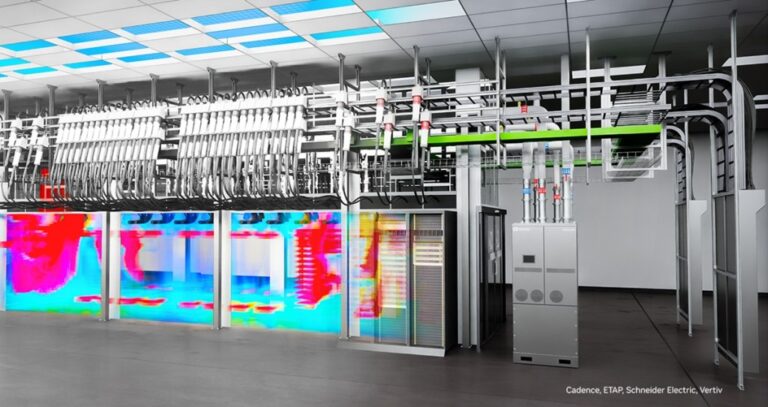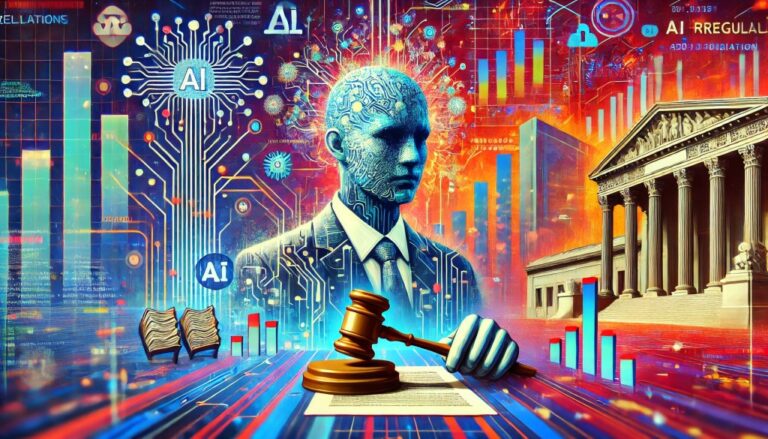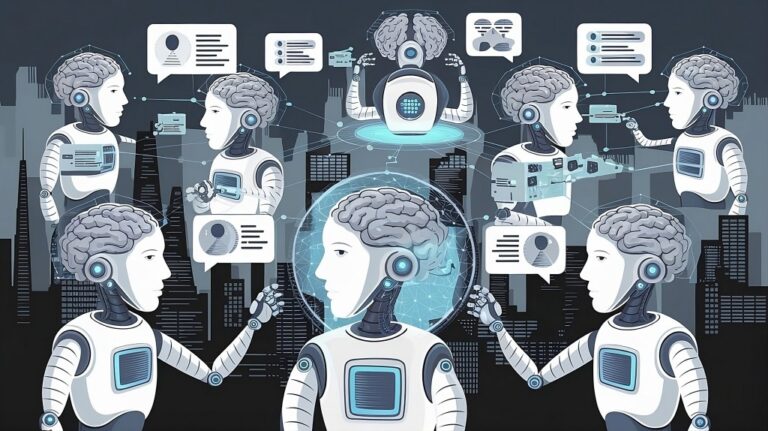
Similar Posts

Nvidia Unveils Omniverse Blueprint: Transforming AI Factories with Digital Twin Technology
Nvidia has launched a significant upgrade to the Omniverse Blueprint for AI factory digital twins, currently available in preview. This platform enables the creation of realistic AI-driven digital twins, enhancing manufacturing insights and efficiency. Key features include advanced simulation capabilities, seamless AI integration for optimizing production, and a more user-friendly interface. The benefits of AI factory digital twins include improved decision-making through real-time data, cost reduction by predicting equipment failures, and increased productivity by streamlining operations. Businesses can explore this transformative technology through the Omniverse Blueprint preview, positioning themselves at the forefront of digital industry advancements.

Sam Altman Acknowledges OpenAI’s Missteps in Open Source Debate: A Turning Point in Tech Ethics
In a recent Reddit AMA, OpenAI CEO Sam Altman raised concerns about the company’s previous stance on open-source AI, suggesting they may have been “on the wrong side of history.” This admission comes as competition intensifies, particularly from the Chinese firm DeepSeek, which is gaining traction with its efficient open models. Altman’s comments indicate a potential strategic shift for OpenAI, possibly exploring open-source partnerships and enhancing collaboration within the AI ecosystem. As the proprietary model landscape faces challenges, OpenAI may adapt its business strategies to align with evolving market demands and foster innovation.

OpenAI and Microsoft Urge Senate: ‘AI Dominance Is a Global Challenge, Not a National Race’
Industry leaders, including Sam Altman of OpenAI, stress the importance of strong U.S. infrastructure to support the growing demand for artificial intelligence technologies. Robust infrastructure enhances innovation, increases accessibility, and ensures scalability for AI applications. Government initiatives, such as funding, policy development, and public-private partnerships, play a crucial role in fostering a conducive environment for AI advancement. Altman emphasizes that with the right infrastructure, AI companies can effectively meet the rising demand for transformative technologies. Overall, a solid infrastructure foundation is essential for the future of AI as it continues to integrate into various sectors.

Meta Stands Firm on Llama 4 Launch Amidst Quality Concerns, Cites Bug Issues
The release of Llama 4, the latest AI model, has sparked interest but faced challenges, resulting in a mixed reception. Initial adoption rates are slow, and some inference providers report performance issues compared to earlier models. Integration into existing systems has also proven difficult. Expectations were high due to Llama 4’s predecessor successes, but technical limitations and market competition have impacted its reception. However, there is optimism for Llama 4’s future, with ongoing updates planned, active community feedback, and potential for specific application niches. Despite its rocky start, Llama 4 holds promise for growth in the AI landscape.

Unlocking AI Potential: How Stytch Connects Apps to Streamline Authorization for Intelligent Agents
Stytch Connected Apps transforms authentication and data access for AI agents and third-party applications, enabling developers to create secure, user-friendly experiences. This platform features seamless user authentication, secure data access, and the ability for AI agents to perform tasks on behalf of users without sacrificing privacy. Benefits include enhanced security, improved user experiences, and easy integration for developers. Interested developers can find comprehensive resources on the official Stytch website. Overall, Stytch Connected Apps is a revolutionary tool that empowers innovation in application development, ensuring robust security and streamlined user interactions in the digital landscape.

Unveiling AI’s Power: How Artificial Intelligence Shapes Your Choices
Advanced AI agents are poised to transform personal interactions by decoding individual personalities through sophisticated analysis. Utilizing techniques like Natural Language Processing, Behavioral Analytics, and Machine Learning, these systems can create detailed user profiles. The benefits include personalized experiences, improved engagement strategies, and enhanced customer service by predicting needs. AI’s applications span various industries, such as marketing, where targeted campaigns can be developed, healthcare for personalized treatment plans, and education to tailor learning experiences. As AI technology evolves, these insights promise to revolutionize communication and engagement, leading to more effective interactions across sectors.
